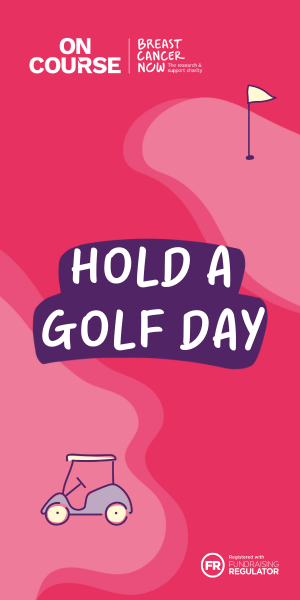Managing your emotions on the golf course is crucial to ensuring success and enjoyment on the course. Kitrina Douglas discusses how you can calm the volcano!

Managing your emotions on the golf course is crucial to ensuring success and enjoyment on the course. Kitrina Douglas discusses how you can calm the volcano!
Emotional Beginnings
Emotions are perhaps one the most talked about aspect of sport performance yet tend to be the least well understood. While many players don’t seem to be bothered by emotional outbursts others swing violently from too much excitement to not enough, or from feeling very happy on the fifth tee to anger, frustration or tears by the ninth, some blame genes, some blame the weather and others put it all down to hormones – how can we judge? What is the right response? Historically women were thought to be emotional while men were supposedly detached, logical, and in control. Of course, watch any sport and you will probably see the whole gambit of emotions being played out by a male audience. This is, of course, because both women and men a have the capacity to be ‘emotional’ and emotions are an important part of our humanity, yet are partly mediated by one’s culture.
Lessons From Flight Crew
In the 1980’s Arlie Hochschild wrote a book called ‘the managed heart’ about the emotional labour airline stewardesses go through in order to manage their emotions in the course of carrying out their work. In the book she described emotions as messengers from the self that provide a medium to interpret and respond to one’s own and other people’s actions, behaviours and experiences. When I read it I thought there were many similarities between her work and mine. For example, as a member of the flight crew it required a woman not to appear fearful, and to look calm and professional when the aeroplane hit difficulty in mid flight and began to plummet several thousand feet. If, at such times, cabin crew shrieked and hung on to their seats wailing the passengers too might loose faith with disastrous consequences – she therefore learns to ‘manage’ her fears.
What About The Animal?
Of course some people believe that our emotions are just ‘natural’ responses, to, as an example, a threat to our life and a survival instinct. They tell stories about Neanderthal man and his flight or fight response, where anger helped kill the enemy. And it is true, hormones, testosterone, adrenaline and other chemicals can surge through the body and blood system and make you feel like you are not in control. Some women suggest that the menopause has made them more teary, more easily upset, and less in control of temperature regulation thus leading to embarrassment, and being more self conscious as a result. All sorts of studies have been published which support these standpoints, and yet, while true, if we believe our body is ‘out of control’ it opens up the possibility to excuse all sorts of behaviours and actions. Like, it’s ok to throw clubs or shout at the umpire.
Emotions Working For You
How an individual golfer manages her emotions on the golf course is somewhat like the flight crew. For example, to a certain extent, emotions follow the meaning we give to events and these are learned behaviours. It may be quite difficult to pin point when and how you learned emotional responses but many of them are none-the-less the result of things that have gone on in earlier moments of our lives and our coping responses to these things, and the responses of others. A simple illustration is this - we golfers often have to look more confident than we feel, and we have to play shots when the heart is pounding - either because we are excited and about to win, or perhaps following a bad experience. How successfully we continue to play golf at these moments depends somewhat are how skilful each of us is at bringing together our thoughts, the meaning and importance of our actions, and those bodily responses that are naturally occurring.
Re Learning
By suggesting that we manage our emotions Arlie Hochschild suggested that we have some autonomy over the way we feel about events and the way we respond. Because emotional responses are somewhat a learned response we don’t have to respond in one way. And if we learn one thing, we are able to learn another. The better we understand what events mean to us symbolically, and pay attention to the underlying meaning, it can be possible to see patterns emerging. Rehearsing mental strategies or doing a little visualisation can help refocus the mind and therefore quieten anger, fear or excitement when it threatens to boil over and ruin our performance or peace. It does take time to become aware, to re-learn and change behaviour, but be assured, you don’t have to remain the exploding volcano every time things go wrong.















